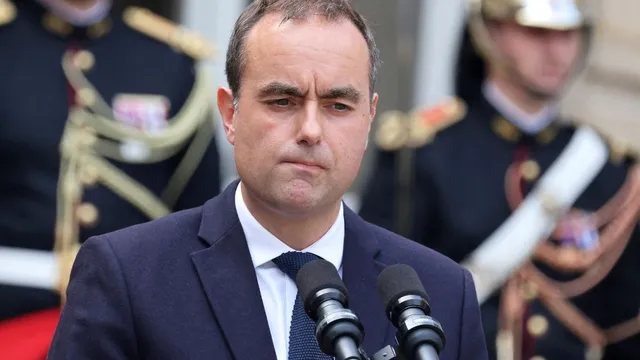- By Shivangi Sharma
- Mon, 06 Oct 2025 02:24 PM (IST)
- Source:JND
France’s Prime Minister Sebastien Lecornu resigned on Monday, just 26 days after taking office, throwing President Emmanuel Macron’s government into fresh turmoil. The Elyseee Palace confirmed that President Emmanuel Macron accepted the resignation following a one-hour meeting with Lecornu. Lecornu, appointed just 26 days ago to succeed Franois Bayrou’s collapsed government, had already come under fire from both allies and opponents over controversial cabinet picks, including the return of ex-Economy Minister Bruno Le Maire as defence chief.
Lecornu, a Macron loyalist and former armed forces minister, was appointed on September 9 to succeed Francois Bayrou, whose government collapsed last month. His abrupt departure makes him France’s fifth prime minister in less than two years and the shortest-serving head of government since 1958.
ALSO READ: Why Moscow’s RD-93 Jet Engine Sale To Pakistan May ‘Benefit India’: Russian Experts Reveal Truth
Macron Faces Pressure For Snap Elections
Since announcing his government, Lecornu has been under growing pressure from both his supporters and the opposition. Appointment of 12 ministers who had served Bayrou was condemned en masse as proof that there was recycling rather than renewal taking place. Lecornu's resignation has put further pressure on Macron to call for early elections. Far-right National Rally leader Jordan Bardella, alongside Marine Le Pen, called for snap elections, stating, "There can be no stability without a return to the polls and without the dissolution of parliament."
Even in Macron's own centrist Renaissance party, there was dissent. Gabriel Attal, who himself is a former prime minister, complained about the method used, regretting the "appalling spectacle" of political squabbling and demanding budget deals before cabinet posts.
EN DIRECT | Déclaration du Premier ministre. https://t.co/2pkRDWyuKF
— Gouvernement (@gouvernementFR) October 6, 2025
Macron Under Pressure
French politics has been turbulent since snap July 2024 parliamentary elections yielded a hung parliament. With no majority, successive prime ministers have found it difficult to construct coalitions with numbers sufficient to push through laws. Lecornu was set to navigate a slimmed-down budget through parliament in order to tackle France's rising deficit, which hit 5.8 per cent of GDP in 2024 and debt of 113 per cent, well over EU limits.
The inability to rally support for his cabinet greatly compromised his capacity to advance economic reforms. While some opposition leaders have gone so far as to demand Macron’s resignation, the president has made clear he will not step down before his term ends in 2027.

